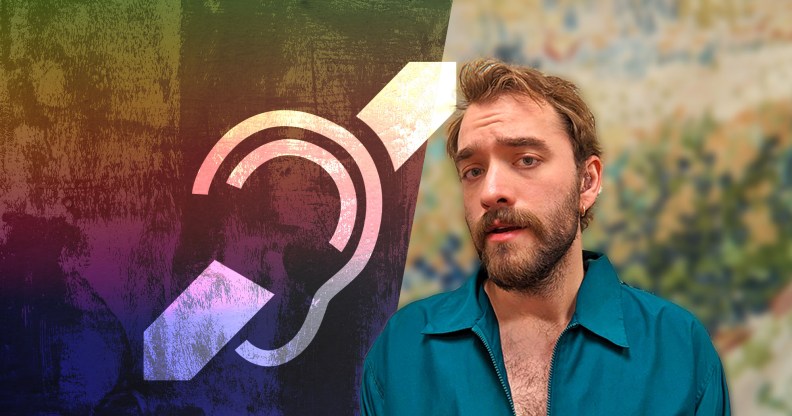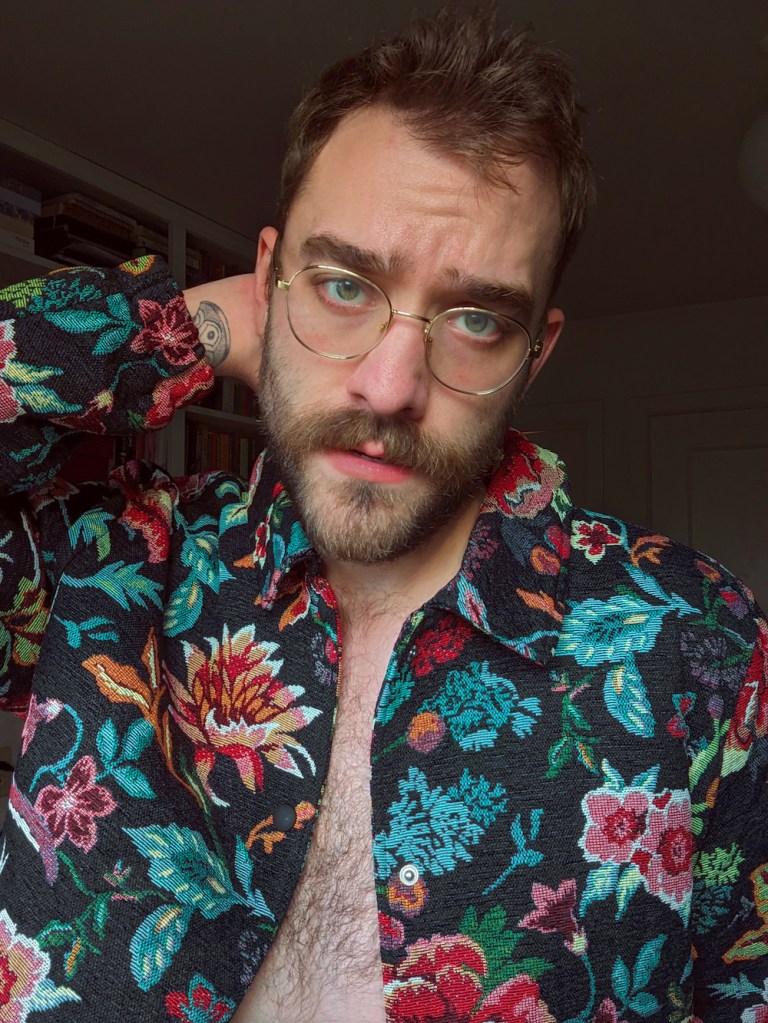Gay deaf man shared ‘hurtful’ Grindr messages to make an important point about ableism

Hayden says “we’re going to need to see a cultural shift towards appreciating diverse bodies”. (Supplied/PinkNews)
As a gay man who is deaf, Hayden Ira May has had his fair share of choice Grindr messages.
Hayden tells PinkNews that his love life “looks similar to that of a lot of people: a few past relationships and break-ups, various dates and one-night stands, and now I’m happily married”.
“All things considered, I’d say it’s been rather successful,” he says.
“I think many people assume that being deaf or disabled fundamentally alters a person’s approach to sex, dating, and relationships, or maybe even guarantees a person won’t experience those things at all. While there are some important considerations, most of the disabled people I know lead healthy, happy romantic lives, myself included.”
But over the years, Hayden has been confronted with horrible ableism, particularly on Grindr. Comments he’s received run from cruelly ignorant – “not interested obviously, but wanted to say that I think it’s cool to see someone like you on here”– to ableist slurs and dehumanising insults – “do you squawk when you get f**ked?”
“The messages I have received are certainly hurtful,” Hayden says.
“It is difficult to connect with people when they feel entitled to intimate explanations of how your ears, eyes, body, or brain work – or don’t work – and dating gets rather dismal when it seems like everyone you meet needs convincing that you should be anyone’s date at all.”
Hayden recently shared some of the insults he’s received on Twitter, sparking a much-needed debate on ableism in the queer community.
“Ableism is a significant problem in the queer community, and it is concentrated in the same circles that participate in racism, transphobia, fat shaming, and other regressive behaviours,” Hayden says.
“Cisgender gay men in particular seem hyper-fixated on physical appearance, masculinity, fitness and able-bodiedness.
“In order to reckon with our ableism problem, we’re going to need to see a cultural shift towards appreciating diverse bodies, and unlearning the false hierarchies many of us have internalised about each other’s worth and value.”
Unlearning those ableist narratives is essential, Hayden explains – he wants everyone to know that disabled people live full, complex lives that are rarely reflected in degrading stereotypes.

“Rather than shock or outrage, I hope sharing these messages prompts introspection,” he says.
“Many of us have internalised ableism without realising it. My guess is that the people writing these kinds of comments have never thought about disability as anything other than something funny or something fearful.” He adds that systemic marginalisation means that many non-disabled people only ever think of disabled people “as punchlines, stereotypes, and objects of inspiration or catastrophe”.
The discourse can’t just be about overtly ableist attitudes either – Hayden wants to see queer communities reflect on accessibility or lack thereof, and what they can do to make it easier for disabled people to thrive.
“Frequently, queer spaces aren’t accessible to deaf, blind, and disabled people,” he explains.
“From gay clubs and bars to even entire Pride events, accessibility seems to be the lowest priority for organisers. Queer spaces aren’t all-inclusive if disabled queer people can’t participate in them.”
Ultimately, he wants people to see the impact of their actions so the queer community can work towards a better future.
“I have to believe in the potential of people to learn to be better, because otherwise, what’s the point?”
He adds: “Disabled people aren’t exceptional. We are not unlike you. The fact of the matter is that, whether through injury, illness or aging, all of us will be disabled in some capacity at some point in our lives.
“Being and becoming disabled does not make us less dignified – it’s a reality of our humanity.”
How did this story make you feel?

